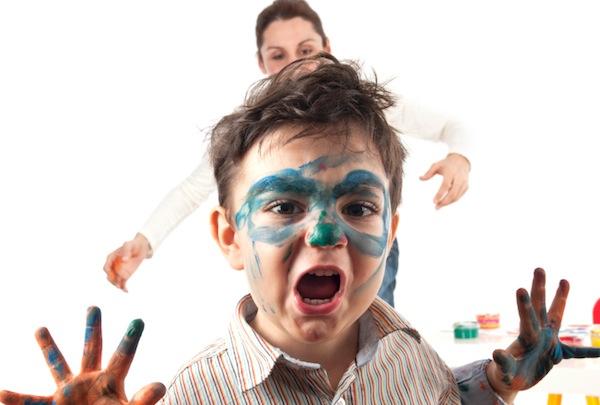
What’s the first thing many women do when they find out they’re pregnant? They run out and buy the book, What To Expect When You’re Expecting by Murkoff, Eisenberg & Hathaway. They read it faithfully so they know what is changing with their bodies and the developing fetus for the entire 40 weeks! When they experience something new, no need to worry! It’s all appropriate for the changes taking place.
What’s the second book many new moms and dads purchase as new parents? What To Expect The First Year! They, too, read America’s Pregnancy Bible word for word, month by month. Not only does it give them an idea of when babies might start to smile, roll over, sit, crawl, and walk, it also gives them information on less pleasant issues such as breastfeeding complications, spitting up, teething, sleep issues, and difficulties of having a colicky baby. Again, knowing what to expect with a new baby, brings the level of worry and concern down significantly.
Then, suddenly, the baby turns one year old, and for many parents, the reading stops. Many have gotten into the groove of parenting and it’s just enough keeping up with a toddler. At about two years of age, my clients start reaching out to me because they don’t understand why their toddlers are suddenly misbehaving. The once totally dependent baby is now climbing out of the crib, refusing to eat certain foods, regressing to using a bottle again, is impulsive, can’t seem to share, says “NO” often, likes to do the opposite of what is asked, and is in a constant state of “me do it”.
Just as learning to sit, crawl, and walk are all developmental milestones, so are the above acts. The difference is that we smile and clap with the first group of items, but frown and yell with the second group. They are ALL developmentally appropriate! Imagine the concept that every age, like every person, has its own unique individuality. Understanding developmental appropriateness - the sorts of things children do, think, and are capable of at different stages - can help parents work effectively with children just as they are at that moment. Although there’s not an exact science as to when your child will reach a certain stage and how long it will last, there are definitely predictable stages that coincide with ages, and it is our job as parents to be aware of them.
Notice I use the word “stages”.......these are merely stages that children enter into, and exit out of. Or at least they are supposed to be merely stages. When we expect a certain stage, we are usually more capable of responding to it in an effective way. However, when we aren’t expecting our children to experiment with gravity, i.e.: throwing food and sippy cup from the high chair, we usually have a big parental reaction! Our voice is much louder and more high pitched than normal, with the accompanying red face, wide eyes, and very surprised look on our faces. Imagine our child not only getting the very cool reaction of gravity, but the added bonus of our performance! That’s a lot of power for a toddler. What’s supposed to be a stage, now becomes a learned behavior, because of our reaction!
At this point, I’ve only mentioned developmental ages and stages of up to two years, but this continues with each passing year. For sake of brevity, I’m only going to mention a couple possibly annoying, yet common behaviors in children for the following ages:
Approx. 3 yrs:
- Makes commands like, “Don’t look at me” or “Don’t talk”
- Can’t always distinguish between reality and fantasy
Approx. 4 yrs:
- Asks “why?” incessantly
- Uses potty words such as “poopoo head”
Approx. 5 yrs:
- May take things that don’t belong to him
- Tends to be more brash, combative, or explosive
Approx. 6 yrs:
- Has difficulty accepting criticism
- Scalp is very tender and sensitive (for all you that have daughters that whine when you brush her hair)
Approx. 7 yrs:
- Easily distracted at mealtime
- Worries that others don’t like him
Approx. 8 yrs:
- Is accident prone
- May refuse to take baths
Approx. 9 yrs:
- Has mood swings
- Wants more freedom
Approx. 10 yrs:
- Difficulty being the brunt of a joke
- Asks personal questions
Approx. 11 yrs:
- May cheat
- Loves to argue
Approx. 12 yrs:
- Friends are crucial
- May not want to be touched in public
Developmental stages differ into the teen years as well. Of course, there are wonderful stages that come with each stage, but if you understand the more challenging stages with various ages, you can work out effective techniques to deal with them. It does help if you realize that most of your child’s worrisome behavior is not anybody’s fault, but a normal part of growing up, and that this, too, shall pass.











